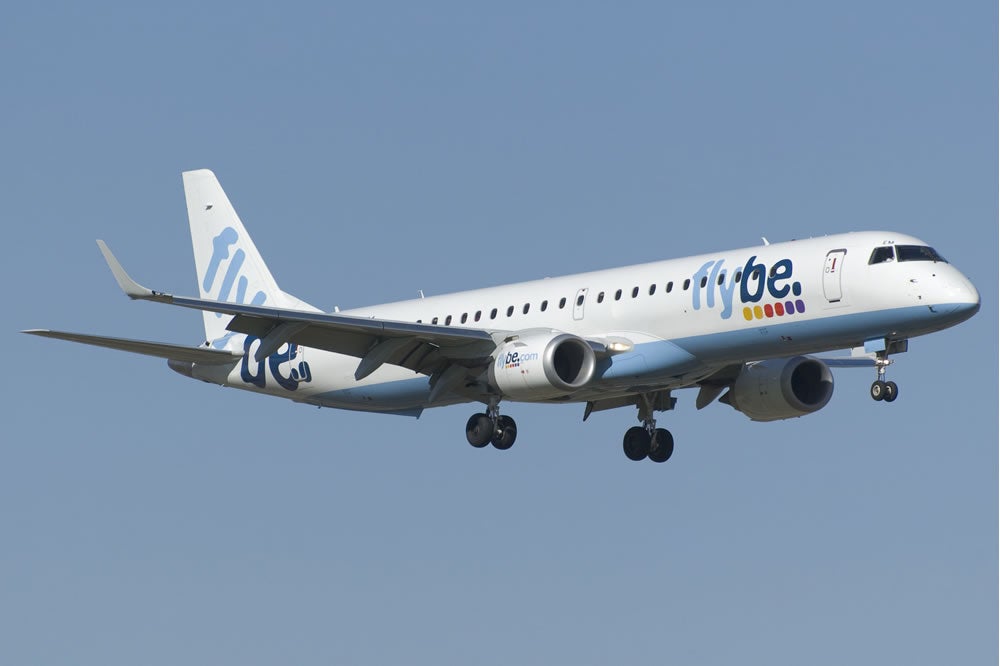The troubled history of resurrected airline brands
Plane Talk: If Flybe Mk 2 is the answer, what is the question?

The track record for failed airlines coming back to life is discouraging.
Laker Airways had arguably the the most positive passenger and public ratings of any transatlantic airline when it went bust, controversially and spectacularly, in 1982. Its rivals, accused of unfairly pursuing the disruptor, later compensated the founder.
Sir Freddie Laker paid his debts and, a decade later, set up Laker Airways: same livery, same DC-10s, same basic plan: cheap flights from Gatwick to Florida. But by then the aviation landscape had changed; Richard Branson’s Virgin Atlantic had filled Sir Freddie’s considerable shoes and there was little appetite for the maverick’s Fort Lauderdale service.
He had one final go at the very start of the 21st century, with a shuttle service from Fort Lauderdale to Grand Bahama, neatly connecting his homes in both south Florida and the Bahamas, but the Laker magic had gone.
I swear that on the same trip where I met Sir Freddie in Grand Bahama, at Miami airport I saw a plane in the colours of Pan Am – the globe-girdling carrier that went bust in 1991. Evidently there are plenty of people who feel that just because an airline has failed, rendering thousands out of work and tens of thousands stranded, its memory can still bring rewards.
I mention this because, as you may have read, Flybe is being resurrected.
Yes, the well-respected regional airline that sadly went bust in March 2020, putting more than 2,000 staff out of work and cutting key links between many UK cities, is to be brought back to life “early in 2021”. Cyrus Capital, the hedge fund behind the resuscitation, won’t tell me when, exactly – presumably because it doesn’t yet know how the world will look.
But the options for Flybe will look very different from the route network that existed before the (not-quite-so-) final touchdown in March. When an airline goes bust, the aviation industry is agile in assessing which routes are worth picking up.
Loganair, Eastern Airways, Blue Islands and Aer Lingus Regional have between them restored the links that they believe make financial sense. There are fewer candidates than there used to be. Since the coronavirus pandemic began, travellers have demonstrated that they are happier in cars than on trains and planes.
From a risk perspective, this is an irrational decision – rail and air have astonishingly good safety records, road does not. But the effect is to render links from Edinburgh and Glasgow to Manchester and East Midlands unviable. So the start-up, or re-start-up, will be chasing a dwindling number of options alongside an expanding range of competitors.
“Bereft of life, Flybe rests in peace.” I wrote in March. “And that is where it should stay.”

But someone with considerably more cash than me evidently disagrees. Cyrus Capital has bought “the brand, intellectual property, stock and equipment” from the administrators of the failed regional airline.
So if Flybe Mk 2 is the answer, what was the question?
Perhaps: “Flybe was around for decades, and the brand must surely have some value?". The odd thing is, had the airline survived it was to be rebranded as Virgin Connect.
How about: “There are loads of cheap planes and out-of-work aviation professionals around; is this the chance to start a Flybe-lite, with a lower cost base?”
That has a more sense to it. While the lessors of Flybe’s planes have mostly reclaimed them, the world has a surplus of aircraft right now. And hiring when nobody else is can cut cost dramatically compared with “legacy” airlines.
My final offer: “Does it make sense to launch a smaller-scale carrier to link the UK with the near-continent?
Possibly. The problem Flybe always had was that as soon as it built up a route to a certain scale, easyJet or Ryanair would march in with a plane more than twice as big (and a lot faster and roomier), and sweep up all the customers. Perhaps with diminished horizons and passenger numbers, that process can be reversed, with the new Flybe picking up links that the low-cost giants can no longer make pay.
But I wouldn’t bet on it.
Join our commenting forum
Join thought-provoking conversations, follow other Independent readers and see their replies
Comments



Bookmark popover
Removed from bookmarks